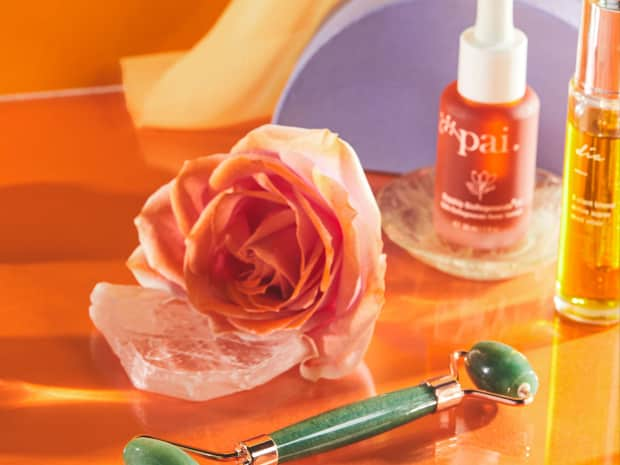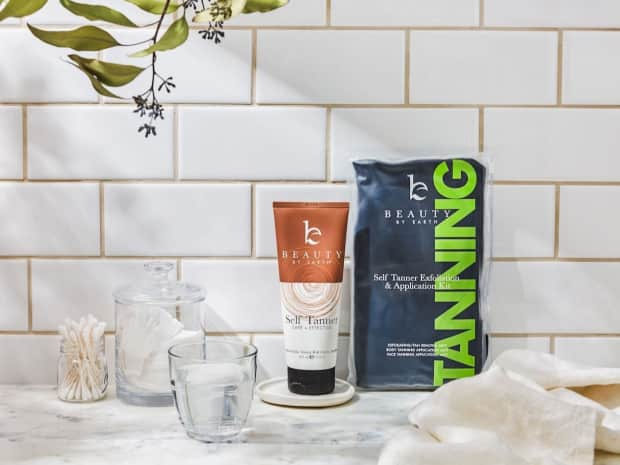Week 1
For the first few days, you won’t notice much difference between your old deodorant and the new stuff, since the lingering aluminum has plugged your armpit pores to prevent them from sweating.


Last Updated: March 9, 2021

Here at Grove Collaborative, we’re big believers in the power of natural products — both for ourselves and for the planet. But we know making the switch can be daunting, especially if you’re accustomed to conventional products and are new to the world of natural, eco-friendly alternatives. That’s why we’ve created Beginner’s Guides to Natural. Each week, we’ll give you a primer on the ins and outs of transitioning to a natural version of a common household item, plus a few of our favorite brands for making the switch. Let’s get to swapping!
Lead image by: Guille Faingold
We all want to take on our busy day without fear of offending the person next to us with our B.O., but what's the best way to combat the stink? It has long been believed that the problem is sweat and that conventional antiperspirants and deodorants work to block your sweat ducts and eliminate the sweat. But, that common belief is just a myth. In fact, it’s not sweat that causes that sour stench:
“It's not sweat that's the problem, rather it's certain bacteria living on your skin that metabolizes a protein in your sweat,” says SmartyPits CEO and Formulator Stacia Guzzo. “Once they metabolize it, they emit a gas that we smell as body odor. ... The problem, then, isn't sweat per se, but that darn bacteria.”
These terms are often used interchangeably, but they're different products. Antiperspirant works to stop your body from sweating in the first place. Deodorant allows you to sweat, and then it tackles the smell.
Regular deodorant may be effective, but are you aware of what you're putting on your skin? Aluminum gets most of the bad rap, but there are a lot of icky ingredients lurking in your deodorant, including butylated hydroxytoluene and cyclopentasiloxane (don't ask us to pronounce that!).
Unfortunately, these ingredients are absorbed into your skin and stored in your cells. There's growing concern that aluminum and other harmful compounds commonly found in regular deodorants and antiperspirants could contribute to developmental issues, reproductive problems, and even cancer, although this has yet to be proven — neither the American Cancer Society nor the National Cancer Institute are willing to make such claims.

The scarlet letter of regular deodorants and antiperspirants is aluminum. Whether you're worried about the possible side effects of aluminum or you simply want a more chemical-free lifestyle, aluminum-free deodorants offer peace of mind and can be just as effective as conventional brands.
Fortunately, there are tons of safe, natural spray deodorants and solid versions available that will deodorize your pits without exposing you to harmful ingredients. A few of our favorites are:
Schmidt's deodorant isn't just natural – it's also cruelty free. This line introduces vegan formulas that are Leaping Bunny Certified, ensuring they're totally animal-friendly. This range of deodorants uses natural ingredients, such as coconut, tea tree oil, arrowroot, and essential oils. They trade out aluminum for magnesium to tackle odors without causing irritation — a fantastic choice if you battle sensitive skin.
When you're looking for a deodorant that's non-toxic, aluminum-free, and totally natural, SmartyPits covers the bases. This thoughtful formula tackles odor-causing bacteria and offers delectable, nature-inspired scents. Our favorite part – three percent of your purchase goes towards breast cancer research and survivor support. This prebiotic formula uses the good bacteria on your skin to kill off odor-causing bacteria, and it doesn't clog your sweat glands.
You can have a powerful deodorant and still go natural with Oars + Alps. This cornstarch-based deodorant absorbs odors and uses natural botanicals to create a splash with pleasing scents, such as Fresh Ocean Splash, Deep Sea Glacier, and California Coast.
Be patient as you make the switch to natural deodorant, because your body's likely going to go through an aluminum purging phase. During this detox phase, the community of bacteria in your pits are undergoing changes, which can make you think your natural deodorant isn’t working. Don’t give up! Keep natural cleansing wipes and natural deodorant on-hand to reapply throughout the day.
For the first few days, you won’t notice much difference between your old deodorant and the new stuff, since the lingering aluminum has plugged your armpit pores to prevent them from sweating.

Around the second week, you’ll start to sweat more as your pits purge toxins and aluminum. Odor-causing bacteria will proliferate, so you’ll probably notice more stink than usual, but this is temporary.

As bacteria levels begin to subside (see? — temporary!) you’ll notice the odor decreasing. The moisture level in your armpits will normalize, but it may take some time to get used to sweating under your arms.

Most bodies adjust to natural deodorant within 30 days. By the end of the fourth week, your body should be fully adjusted to natural deodorant. Keep using it to neutralize odors safely and naturally.

This is really a personal decision. Deodorants featuring essential oils for fragrance are very pleasing, but if you're prone to skin irritation because of allergies or general sensitivity, fragrance-free deodorant is a safer bet.
Any products that use safe, natural ingredients instead of harsh chemicals are better for you in the long run.
You certainly could make your own natural deodorant in your own kitchen, but making deodorant that's convenient and easy to apply is both difficult and time-consuming.
Looking for more cleaning how-tos and other sustainable swaps you can make at home? Grove has you covered. From timely topics such as our handwashing and hand sanitizer breakdown to evergreen primers like our simple ways to reduce your plastic use at home, our handy guides are here to answer your most pressing questions. And let us know how if you have any cleaning questions (or share your own tips using #grovehome) by following Grove Collaborative on Instagram, Facebook, Twitter, and Pinterest.

Learn why these natural toners are your secret step to healthy skin.

Learn about the benefits of natural eye creams for the most delicate area on your face.

A guide to the best natural lip balms and why they’re so effective.

A breakdown of natural self tanners and sunless tanners — and what might be lurking in conventional brands.